21 Sep
Katrina Kittle Guest Post: Writing Tough Subjects for Young Readers
Posted in Literature, Reading, Writing
Hello everyone! Today, following our Body Image theme, I’ve got the fabulous Katrina Kittle here to tell us about what it was like to write her new book: Reasons To Be Happy. This book–which literally had me in tears–deals with body image and eating disorders, and does so in a way that young readers can really relate. What makes Reasons To Be Happy so unique is that it addresses these issues for such a young age group. This is not the first book to deal with heavy subjects for middle grade readers–nor will it be the last, I’m sure–but given how rare it is to find books like this, I jumped at the chance to host Katrina here at iggi&gabi and learn about her experience writing the book. Now without further ado, here’s Katrina!
Thanks so much for hosting me, Gabi!
I’ve always been drawn to tough subjects, I think, but I don’t really choose them based on how dark or tough they are. I’m fascinated by human resilience. One of my favorite quotes is from Ernest Hemingway. He said, “The world breaks everyone. And, afterwards, some are
strong at the broken places.” I just love that. All of my stories are in some way or another about people becoming stronger at their broken places. Because, let’s face it, life kicks us all in the teeth at some point or another. Some people don’t just survive, but go on to thrive after their struggle. I think every novel I’ve ever written shares that theme. I’m far more interested in the “stronger at” part of that quote than the “broken” part. I don’t choose tough topics to drag readers to dark places. I choose them for the redemption and hope at the recovery and outcome.
I’ve written four novels for adults, but Reasons to Be Happy is my very first venture into writing for a younger audience. I tried not to change my approach or process too much. All of my stories have begun with a social issue I care deeply about (and because I’m such a sucker for comeback stories, second chance stories, and phoenix stories, those issues tend to be tough ones). I’ve written about AIDS, addiction, divorce, child abuse, and now, with Reasons, body image and eating disorders. Although the issue is always my seed for a story, I then work to create a cast who would populate a story about that issue, because a novel must be a story above all else—it can’t just be a public service announcement! This felt even more crucial for a tween audience than for my adult audiences. No one wants to be lectured, after all, and because I was a middle school teacher for several years, I know that middle schoolers in particular have a built-in resistance to stories “with a lesson” for them. If you’re patronizing them, they can smell it a mile away.
It’s more satisfying for the reader if any discoveries and revelations come through the character, not from me. I hoped readers, young women especially, would identify with Hannah’s doubts, fears and struggles, and maybe think about Hannah’s mistakes (and then, a writer’s dream—to apply that knowledge to their own lives). My goal is always to invite the reader to think about the issue, but not necessarily tell them what to think about the issue. One of the greatest joys, for readers of any age, is to have something to discuss at the end of a book. Discussion isn’t possible if everything is too black-and-white with no room interpretations and perspectives.
In early drafts, I made the mistake of “watering down” and playing it too safe. A wonderful editor encouraged me to “forget your audience.” That sounds crazy,
right? But she said, “I picture you picturing this room full of middle school girls. Forget them. Just write the novel you’d always write. The only difference is that all the protagonists happen to be in middle school.” This advice really spoke to me and allowed me stop trying to “filter” for the tween audience. Those attempts to filter will always show and will inevitably be insulting.
Don’t get me wrong. Of course there is a difference in presenting tough subject matter for a tween audience and an adult audience. But for me the key was my protagonist. Especially since Hannah tells the story in first-person, the only “filter” I needed was her. She tells the story with her perspective and understanding of events, not mine. That became important in revision: I would comb through looking for lines or passages that were colored by my own, more experienced viewpoint. When I found them, they had to go. Hannah could only know what she would know as an eighth grader with her own life experience so far.
The overall hope for any story, though, is the same no matter what age you’re writing for. Above all else, I sincerely hope readers are entertained by the journey. Another quote I love (I heard it in a writing lecture once, but have no idea who to attribute it to!): “A novel is not a message clamped to a passenger pigeon’s leg. It should be the experience of watching that pigeon fly from A to B.”
Thank you so much Katrina for being here today!
For anyone who would like to learn more about Katrina check out her website: www.katrinakittle.com
You can also follow her on Twitter: @katrinakittle
Or visit her facebook page: www.facebook.com/KatrinaKittleFanClub
For more information on Reasons To Be Happy (and to find a list of reasons to be happy for every day), visit the blog: http://katrinakittle.blogspot.com
Also, you can follow the Twitter hash tag: #reasonstobehappy


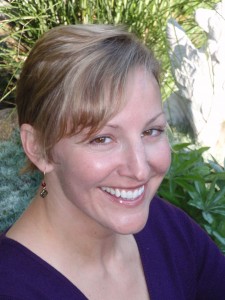


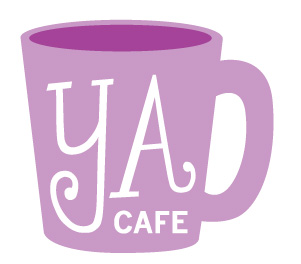
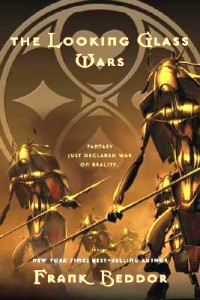
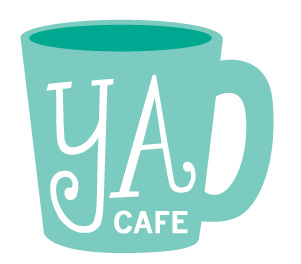
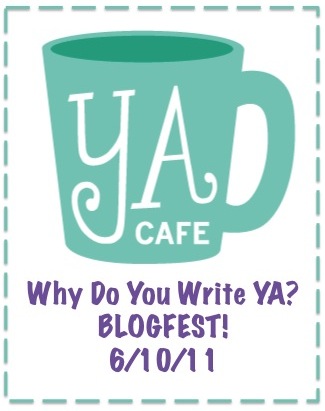





 Call me Gabi (pronounced gah-BEE). I'm a writer, freelance teacher, and a lover of books and words. I'm also the instigator of DIY MFA. iggi's my sidekick, but he thinks he's the brains behind this operation.
Call me Gabi (pronounced gah-BEE). I'm a writer, freelance teacher, and a lover of books and words. I'm also the instigator of DIY MFA. iggi's my sidekick, but he thinks he's the brains behind this operation.
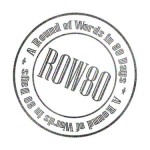 ROW80 Check-In (2)
ROW80 Check-In (2) YA Cafe: Villains and Antagonists
YA Cafe: Villains and Antagonists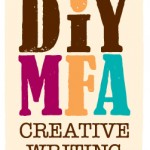 Introducing Writer Fuel
Introducing Writer Fuel ROW80 Check-In (1)
ROW80 Check-In (1)